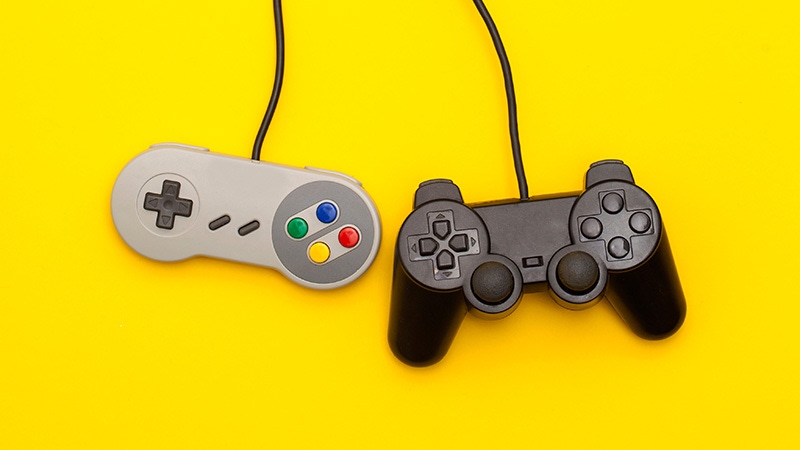ESA expects publishers to fix preservation problem
The Entertainment Software Association says it's committed to defending current copyright practices: which makes game preservation all the more difficult.

The video game industry's efforts to preserve its surprisingly fragile history took a turn this week when the Video Game History Foundation shared data indicating that 87 percent of games released before 2010 have not been preserved in any real capacity. The Foundation has long faced an uphill struggle against the United States Copyright Office, a subdivision of the Library of Congress, which has yet to greenlight broad protection exemptions for game preservation.
Such exemptions have faced resistance by the Entertainment Software Association, a trade group backed by major publishers like Nintendo, Microsoft, and Sony. And even after this week's alarm bell, the ESA is still convinced that said publishers and their affiliates are the ones best equipped to preserve video game history.
Speaking to Game Developer in a conversation about the ESA's just-released "Essential Facts" survey for 2023, ESA president & CEO Stanley Pierre-Louis described video games as "the most expressive works in our copyright canon," and that it is "critically important" that companies maintain authority to best decide how video games are-released.
"I don't know that I agree with the results of [the VGHF's] study or how they're characterizing it," he said. "There's a robust avenue for preservation to occur and that is occurring."
As positive examples, Pierre-Louis pointed to recent efforts by Microsoft, Nintendo, and Sony to crack open their back catalogues. Microsoft spent a number of years making Xbox and Xbox 360 games backwards compatible on modern Xbox devices, while Nintendo, and Sony each released retro emulation hardware pre-packaged with titles that ran on the original consoles.
Nintendo has also spent the last few years making some older games available through its Nintendo Switch Online subscription service. These games include titles from the Nintendo Entertainment System, Super Nintendo Entertainment System, Game Boy, and Game Boy color libraries.
Pierre-Louis also claimed that its member organizations "work with a wide range of well-resourced public institutions that adhere to high professional standards in looking on how best to preserve games for use by scholars" under 2015 exemption guidelines issued by the Library of Congress Copyright Office.
Said guidelines were updated in 2018 with more favorable (but still relatively restrictive) exemptions—but in 2021, the Office declined to expand said exemptions owing to "the greater risk of market harm in this context given the market for legacy video games."
Are video game publishers doing enough to preserve older titles?
The efforts of Nintendo, Sony, Microsoft (and even Sega) to commercialize their classic game libraries are formidable, but those combined efforts have made barely a fraction of titles from those eras accessible to modern players.
Video Game History Foundation co-founder Kelsey Lewin agreed with Pierre-Louis that industry leaders have made "great strides" to keep more historical games preserved commercially. "What we've shown with this study is that it's not enough," they said. "The combined efforts of the industry have re-commercialized just 13% of all historical games."
"We need to acknowledge that the market alone won't be enough to preserve gaming history, and that libraries and archives need more tools to work with the games that fall outside the commercial marketplace's interests."
Lewin told Game Developer that the Foundation does not that want this week's news to create an "us-vs-them" argument with its industry counterparts. "We hope we can all agree that this is a place where libraries and archives can and should be empowered to make a difference," she concluded.
About the Author(s)
You May Also Like













